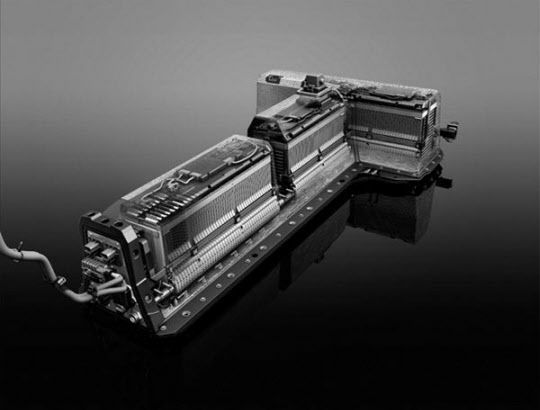
LG Energy Solutions is making a’big investment’ of more than 5 trillion won in the US battery market alone. While the U.S. government is reviewing the supply chain for electric vehicle batteries on the occasion of the spread of the corona, it is planning to strengthen cooperation with the local industry by lowering concerns about supply and demand.
On the one hand, it is interpreted as an intention to block President Biden’s veto from exercising a large-scale investment card after the lawsuit against SK Innovation.
LG Energy Solutions announced on the 12th that it will select two new factories in the US in the first half of the year and invest 5 trillion won on its own in the local battery market. The goal is to secure an additional battery production capacity of more than 70 gigawatt hours (GWh) in the US alone. In the first half of the year, the joint venture with GM will also confirm investment in the second plant following the construction of the first plant.
“Decision to invest in the US market change”… Biden stabbed it
LG Energy Solutions plans to select at least two candidate sites in the US by the first half of the year. The company plans to make full-fledged investments through promptly the business suitability review and the board resolution process. When investment is made, the independent battery production capacity (CAPA) will increase to a total of 75GWh by adding the Michigan plant (5GWh).
When the second plant of the GM joint venture is completed, the total production capacity will exceed 140GWh. GM plans to release about 30 new electric vehicle models by 2025, of which 20 will be sold in North America, and this investment is expected to further strengthen the partnership between the two companies.
LG Energy Solutions explained that the investment decision was “to preemptively secure battery production capacity in consideration of changes in the US market environment.” As they are currently discussing the expansion of their business in the US with several automakers, it is necessary to quickly secure production capacity.
The U.S. government is concerned that the supply and demand for major parts such as batteries and vehicle semiconductors in the U.S. is gradually increasing due to the aftermath of the spread of Corona 19. A prerequisite for US-made electric vehicles is local production of battery cells. The US government imposes a 10% penalty tax for selling non-US electric vehicles locally. Nevertheless, as the battery supply and demand anxiety grew, President Biden ordered a full review of the battery supply chain.
The US is looking forward to three domestic companies (LG Energy Solution, Samsung SDI, and SK Innovation) and Panasonic of Japan for the electric vehicle battery industry. LG Energy Solutions is also contributing to the local supply chain through the Michigan plant and the Ohio GM joint plant currently under construction. An industry insider said, “As the US wants to strengthen cooperation with battery companies in allied countries, this investment is a decision that fits in a timely manner with the intention of the US government.”

LG and SK also “will invest more”… In the fog of veto by the US president
Some have interpreted LG Energy Solution’s investment as a move with a lawsuit against SK Innovation in mind. On the 10th of last month (local time), the US International Trade Commission (ITC) ruled against SK in a lawsuit for infringing battery trade secrets filed by LG Energy Solutions against SK Innovation. However, LG cannot be relieved until the end. This is due to the possibility that President Biden will exercise his veto during the remainder of the deliberation period.
SK Innovation recently requested the U.S. Trade Representative (USTR) to exercise the presidential veto against the ITC’s order to ban imports. President Biden must decide whether to exercise his veto within this month. It is unclear to what extent the U.S. administration will intervene in intellectual property disputes between companies, but there is no possibility of vetoing lawsuits for policy reasons.
SK Innovation tried to persuade the U.S. government about the job effects that battery factories 1 and 2 under construction in Georgia, U.S. would bring. The plant investment alone costs more than 3 trillion won. The company also pulled out a card to invest an additional $2.4 billion (about 2.7 trillion won) by 2025. It is a strategy to somehow bring out President Biden’s veto power.
Related Articles

LG Ensol invests 5 trillion won in US batteries… GM joint venture 2nd plant also promoted

SK Ino “losing battery dispute is due to inexperience in responding to US judicial proceedings”

US ITC “SK, LG would have taken 10 years to develop batteries without trade secrets”

Prime Minister Jeong Sye-gyun “LG-SK needs to quickly conclude the battery dispute”
Now that LG Energy Solutions has paid more than 5 trillion won in investment this time, the results are now even more unpredictable. According to industry sources, LG Energy Solutions is also reported to have recently informed the USTR to keep the final ITC ruling in response to SK’s request.
An industry insider said, “The two companies agree to eliminate the uncertainty that has come to the Georgia plant, but the worst situation continues in which the gap between the two companies over the settlement money is not narrowing.” He said, “It’s got to be deeper and deeper.”
